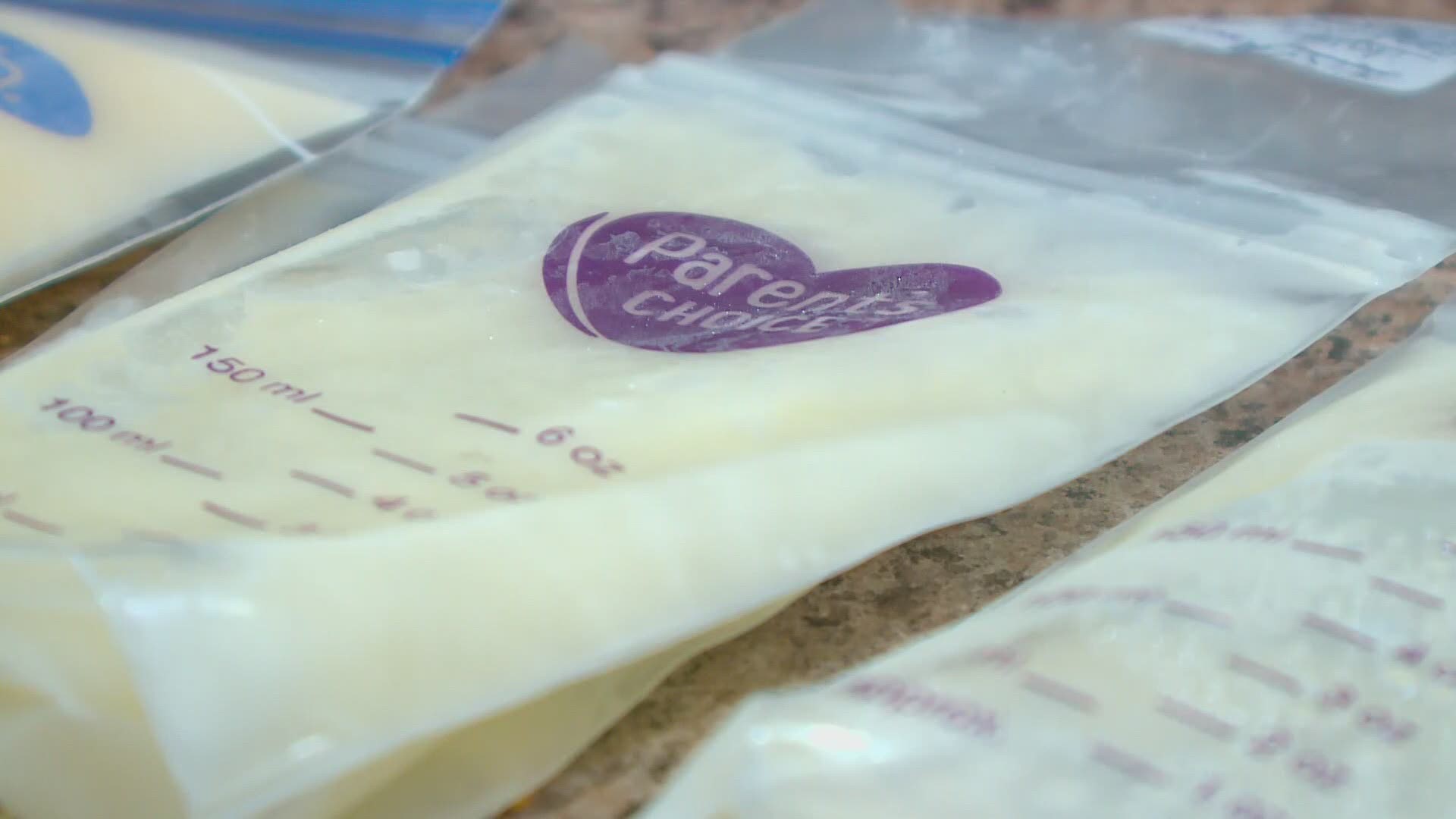GORHAM, Maine — Most of us have heard about how convalescent plasma is being used to treat hospitalized patients with COVID-19.
Antibodies in breast milk are now being studied as a potential treatment for coronavirus.
Researchers are actively collecting breast milk from across the country.
Brianna and Robbie Tosetti had just brought home their new baby boy Jacob last March when Brianna started getting what at first felt like a cold.
"I didn't think that much of it at the time, a new mom of two I am waking up every two to three hours to breastfeed my baby," Brianna said.
That cold got worse—she lost all taste and smell and chalked it up to the flu and exhaustion. Their 4-year-old Tommy also had flu-like symptoms. Her husband suffered from fever, chills, a burning cough, and at times was actually delirious.
Later, Robbie started suffering from blood clots in his calf and had to be treated in the hospital. He ended up testing positive for COVID-19 but the family didn't know a lot about the virus early in the pandemic.
But the one family member who stayed healthy? Their newborn, Jacob.
"I was terrified at first but after he showed no symptoms," Brianna said.
Despite being sick, Brianna consistently nursed her baby. Experts say breast milk provides antibodies that give babies a healthy boost and protects them against many infections. These antibodies may also fight against COVID-19 infection if a baby is exposed.
"I believe that's the reason why he didn't get sick because I was loving on him and kissing him, I had to hold my newborn," Robbie said.
Over the past several months, Brianna has been freezing one-ounce samples of her breast milk. She hopes they will be part of a first of its kind national study that may lead to a breakthrough treatment for COVID-19.
"The goal is to analyze a thousand different samples to really understand the response," Dr. Rebecca Powell said. Powell is an assistant professor of medicine, Division of Infectious Diseases, at the Icahn School of Medicine at Mount Sinai in New York City.
Powell is collecting breast milk from across the country to study the antibodies, including front line health care workers vaccinated against the virus.
The study is being funded by the National Institutes for Health. In 95 percent of the breast milk samples researchers have studied so far, COVID-19-specific antibodies have been discovered.
"There is definitely what we call neutralizing potency you see that those antibodies stop the virus from infecting cells," Powell said.
Similar to antibodies in the plasma of COVID-19 patients, these antibodies could be used as a respiratory treatment against the virus one day.
Back in Gorham, Brianna and her family are grateful that she was able to give Jacob's immune system the protection he needed and encourages other moms to do the same.
Even if you can't breastfeed, for example, Brianna pumps her milk now, as long as you are near your baby with skin-to-skin contact, your milk will alter to your baby, Brianna said.
Currently, participants are submitting one-ounce samples monthly. The study prefers women who have had a confirmed case of COVID-19.
Click here for more information on the breast milk study being conducted by Dr. Rebecca Powell at the Icahn School of Medicine at Mt. Sinai. Email Powell directly at rebecca.powell@mssm.edu.

